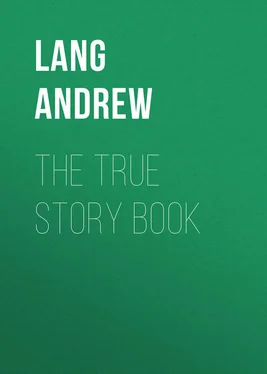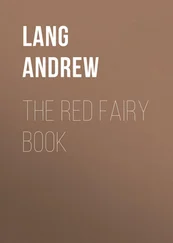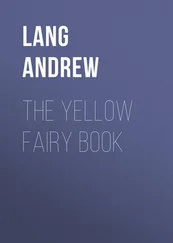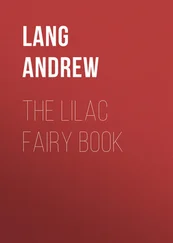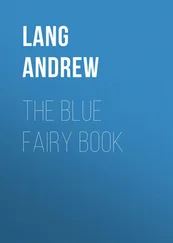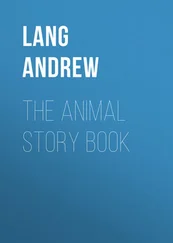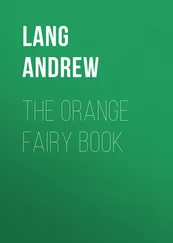Andrew Lang - The True Story Book
Здесь есть возможность читать онлайн «Andrew Lang - The True Story Book» — ознакомительный отрывок электронной книги совершенно бесплатно, а после прочтения отрывка купить полную версию. В некоторых случаях можно слушать аудио, скачать через торрент в формате fb2 и присутствует краткое содержание. Жанр: foreign_antique, foreign_prose, на английском языке. Описание произведения, (предисловие) а так же отзывы посетителей доступны на портале библиотеки ЛибКат.
- Название:The True Story Book
- Автор:
- Жанр:
- Год:неизвестен
- ISBN:нет данных
- Рейтинг книги:3 / 5. Голосов: 1
-
Избранное:Добавить в избранное
- Отзывы:
-
Ваша оценка:
- 60
- 1
- 2
- 3
- 4
- 5
The True Story Book: краткое содержание, описание и аннотация
Предлагаем к чтению аннотацию, описание, краткое содержание или предисловие (зависит от того, что написал сам автор книги «The True Story Book»). Если вы не нашли необходимую информацию о книге — напишите в комментариях, мы постараемся отыскать её.
The True Story Book — читать онлайн ознакомительный отрывок
Ниже представлен текст книги, разбитый по страницам. Система сохранения места последней прочитанной страницы, позволяет с удобством читать онлайн бесплатно книгу «The True Story Book», без необходимости каждый раз заново искать на чём Вы остановились. Поставьте закладку, и сможете в любой момент перейти на страницу, на которой закончили чтение.
Интервал:
Закладка:
The leader of the band was a young man in Highland dress, tall and fair, and with that 'air' of which his followers fondly complained afterwards that no disguise could conceal it. At the sight of him, arriving in this plight at their doors, a great cry of consternation broke from the assembled household. There was no need to tell the terrible news: the Prince was a fugitive, a battle had been lost, and the good cause was for ever undone! It was no time for idle grieving, immediate relief and refreshment must be provided, and the Prince sent forward without delay on his perilous flight. The ladies tore off their laces and handkerchiefs to bind up wounds, and wine was brought out for the fugitives. There is no certain account of Charles's interview with Lord Lovat; we do not know whether the cunning old man turned and upbraided the Prince in his misfortune, or whether the instincts of a Highland gentleman overcame for a moment the selfishness of the old chief. Anyway, this was no time to bandy either upbraidings or compliments. Forty minutes of desperate fighting on the field of Culloden that morning had broken for ever the strength of the Jacobite cause. Hundreds lay dead where they fell, hundreds were prisoners in the hands of the most relentless of enemies, hundreds were fleeing in disarray to their homes among the mountain fastnesses. For the Prince the only course seemed to be flight to the West coast. There, surely, some vessel might be found to convey him to France, there to await better times and to secure foreign allies. A price was on his head, his enemies would certainly be soon on his traces, he dared not delay longer than to snatch a hasty meal and drink some cups of wine.
At Gortuleg the party broke up and went their several ways. The Prince was accompanied by the Irish officers of his household, Sir Thomas Sheridan, O'Neal, and O'Sullivan, gentlemen-adventurers who had accompanied him from France and whose advice in his day of triumph had often been injudicious. Let it be said for them that they were at least faithful and devoted when his fortunes were desperate. As guide went a certain Edward Burke, who, fortunately for the party, knew every yard of rugged ground between Inverness and the Western sea. During all the time that he shared the Prince's wanderings this Edward Burke acted as his valet, giving him that passionate devotion which Charles seems to have inspired in all who knew him personally at this time. Reduced now to a handful of weary, wounded men, the Prince's party continued their flight through the chilly April night. At two o'clock next morning they had passed the blackened ruins of Fort George. As dawn broke they drew rein at the house of Invergarry. But the gallant chief of the Macdonells was away, and the hospitable house was deserted and silent; the very rooms were without furniture or any accommodation, and the larder was bare of provisions. But wearied men are not fastidious, and without waiting to change their clothes, they rolled themselves up in their plaids on the bare boards, and slept the sleep of utter weariness. It was high noon before they woke up again – woke up to find breakfast unexpectedly provided, for the faithful Burke had risen betimes and drawn two fine salmon from the nets set in the river. Here for greater security the Prince and his valet changed clothes, and the journey was continued through Lochiel's country. The next stage was at the head of Loch Arkaig, where they were the guests of a certain Cameron of Glenpean, a stalwart, courageous farmer, whom the Prince was destined to see more of in his wanderings. Here the country became so wild and rugged that they had to abandon their horses and clamber over the high and rocky mountains on foot. In his boyhood in Italy the Prince had been a keen sportsman, and had purposely inured himself to fatigue and privations. These habits stood him now in good stead; he could rival even the light-footed Highlanders on long marches over rough ground; the coarsest and scantiest meals never came amiss to him; he could sleep on the hard ground or lie hid in bogs for hours with a stout heart and a cheerful spirit.
Here on the night of Saturday, the 19th, among the mountains that surround Loch Morar, no better shelter could be found than a shieling used for shearing sheep.
The next day, Sunday, the 20th, they came down to the coast and found refuge in the hospitable house of Borodale, belonging to Mr. Angus Macdonald, a clansman of Clanranald's. Nine months before, when the Prince had landed from France and had thrown himself without arms or following on the loyalty of his Highland friends, this Angus Macdonald had been proud to have him as his guest. One of his sons, John, had joined the Prince's army and had fought under his own chief, young Clanranald. This young man was at this time supposed to have been killed at Culloden, though in fact he had escaped unhurt. When the Prince, therefore, entered this house of mourning he went up to Mrs. Macdonald and asked her with tears in his eyes if she could endure the sight of one who had caused her such distress. 'Yes,' said the high-hearted old Highland-woman, 'I would be glad to have served my Prince though all my sons had perished in his service, for in so doing they would only have done their duty.' 5 5 'I had three sons, who now hae nane, I bred them toiling sarely, And I wad bare them a' again And lose them a' for Charlie!'
While resting here at Borodale, Charles sent his final orders to the remnant of his gallant army, which under their chiefs had drawn to a head at Ruthven. They were to disperse, he wrote, and secure their own safety as best they could; they must wait for better times, when he hoped to return bringing foreign succours. Heartbreaking orders these were for the brave men who had lost all in the Prince's cause, and who were now proscribed and homeless fugitives.
Charles and the handful of men who accompanied him had expected that, once safely arrived at the coast, their troubles would be over and the way to France clear. But at Borodale they learned that the Western seas swarmed with English ships of war and with sloops manned by the local militia. A thorough search was being made of every bay and inlet of the mainland, and of every island, even to the Outer Hebrides, and further, to remote St. Kilda! This disconcerting news was brought by young Clanranald and Mr. Æneas Macdonald of Kinloch Moidart, the Parisian banker who had accompanied Charles from France. The latter had just returned from an expedition to South Uist, where he had more than once narrowly escaped being taken by some vigilant English cruiser. It was impossible, he urged, for a ship of any size to escape through such a closely-drawn net; the idea of starting directly for France must be abandoned, but could the Prince escape to the outer islands and there secure a suitable vessel, he might be out upon the wide seas before his departure was discovered. It was therefore decided that the little party should cross the Minch in an open boat and make for the Long Island. For this expedition the very man was forthcoming in the person of the Highland pilot who had accompanied Mr. Macdonald to South Uist. This was old Donald MacLeod of Guatergill, in Skye, a trader of substance and a man of shrewdness and experience. In spite of being a MacLeod he was a staunch Jacobite, and had joined the Prince's army at Inverness. He had a son, a mere lad, at school in that place; this boy, hearing that a battle was likely to take place, flung aside his book, borrowed a dirk and a pistol, and actually fought in the battle of Culloden. More lucky than most, he escaped from the fight, tracked the Prince to Borodale, and arrived in time to take his place as one of the eight rowers whom his father had collected for the expedition. The boat belonged to the missing John Macdonald, for the Borodale family gave life and property equally unhesitatingly in the Prince's service.
Читать дальшеИнтервал:
Закладка:
Похожие книги на «The True Story Book»
Представляем Вашему вниманию похожие книги на «The True Story Book» списком для выбора. Мы отобрали схожую по названию и смыслу литературу в надежде предоставить читателям больше вариантов отыскать новые, интересные, ещё непрочитанные произведения.
Обсуждение, отзывы о книге «The True Story Book» и просто собственные мнения читателей. Оставьте ваши комментарии, напишите, что Вы думаете о произведении, его смысле или главных героях. Укажите что конкретно понравилось, а что нет, и почему Вы так считаете.
